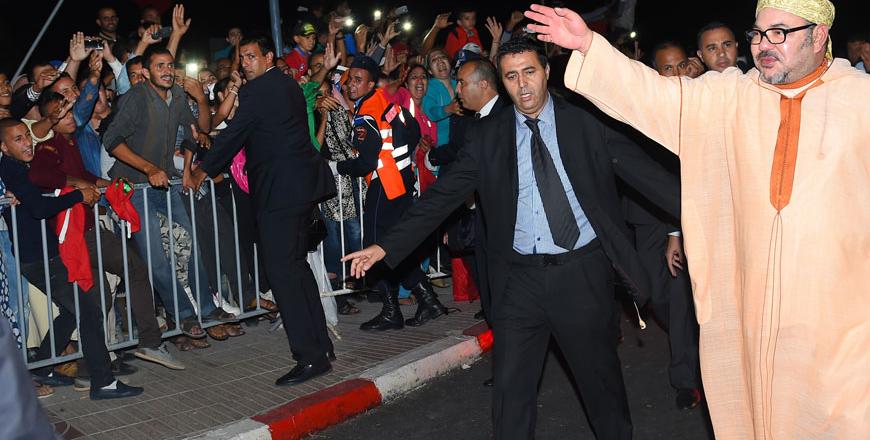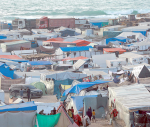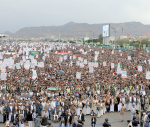You are here
Morocco stands fast on Western Sahara autonomy plan
By Reuters - Nov 07,2015 - Last updated at Nov 07,2015

In this photo dated Friday, Morocco's King Mohammed VI waves to the crowd in Laayoune, the capital of the Western Sahara (AP photo)
RABAT — Morocco's king said he will offer no more than autonomy for the disputed Western Sahara, a few days after United Nations chief called for "true negotiations" to end the four-decade deadlock over the region.
Morocco has controlled most of Western Sahara since 1975 and claims the sparsely populated stretch of desert, which has offshore fishing, phosphate reserves and oilfield potential, as its own territory.
However, the Algeria-backed Polisario Front seeks independence and a United Nations mission was formed more than 20 years ago ahead of an expected referendum on Western Sahara's political future which has never taken place.
UN special envoy to Western Sahara Christopher Ross has intensified visits to the region and Europe recently to facilitate negotiations without preconditions and in good faith, Secretary-General Ban Ki-moon said in a statement last week.
"This initiative is the maximum Morocco can offer," Morocco's King Mohammed VI said, referring to the autonomy plan for the region. "Its implementation depends on reaching a final political agreement under the backing of the United Nations."
The king was speaking late on Friday in a televised speech commemorating the 40th anniversary of the Green March day, when thousands of Moroccans marched on Western Sahara.
"Morocco refuses any adventure with an uncertain result that could be potentially dangerous," he said.
The Western Sahara dispute returned to the headlines last month when Morocco said it was considering a boycott of Swedish companies operating in the North African kingdom because of Sweden's position on the conflict.
The government said Sweden has been campaigning to boycott products from Western Sahara and international companies with a presence there.
"Whoever wants to boycott Moroccan products is free to do so, but they should assume the consequences of their decisions," the king said.
Sweden and other Scandinavian countries have backed Western Saharan self-determination, while France and Spain have been accused by activists and human rights organisations of supporting the Moroccan line.
Polisario's planned Sahrawi Republic was recognised by some countries, mainly from the African Union, but none of the Western powers recognised it.
Morocco said it will revive the region through investment, including a new roads programme and an international airport serving the rest of Africa. It has called for Moroccan and foreign investors to seize opportunities there.
While rights groups such as Amnesty International accuse Morocco of continuing to use excessive force against activists and repressing political freedom in Western Sahara, Rabat invests heavily there, hoping to calm social unrest and dissuade independence claims.
Related Articles
RABAT – Moroccan authorities have blocked the opening of IKEA's first store in the North African kingdom planned for Tuesday because it lack
RABAT — Morocco's government has accused UN Secretary General Ban Ki-moon of no longer being neutral in the Western Sahara conflict, saying
UNITED NATIONS, United States — Morocco has accused Polisario Front fighters in Western Sahara of violating a ceasefire agreement, just
















